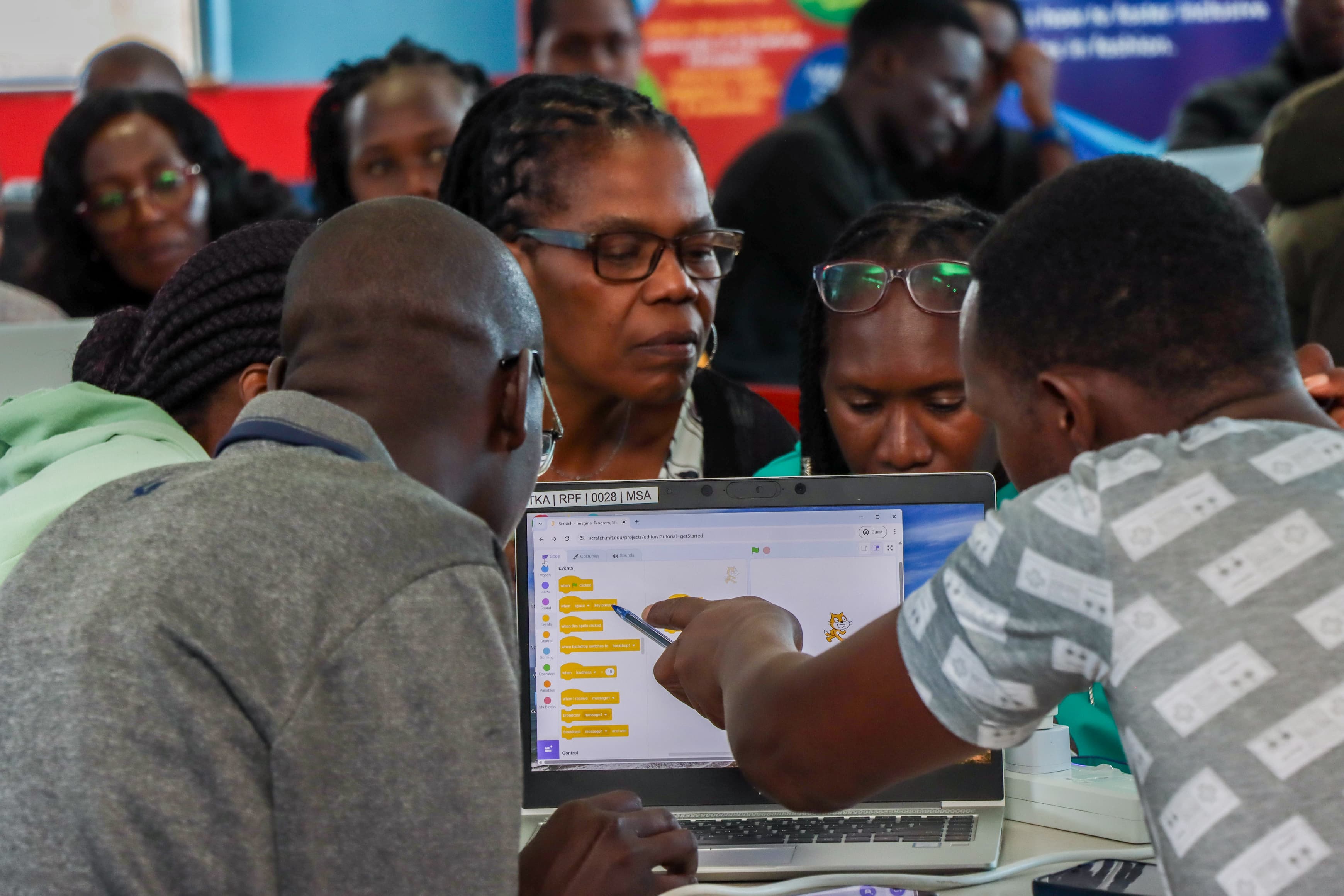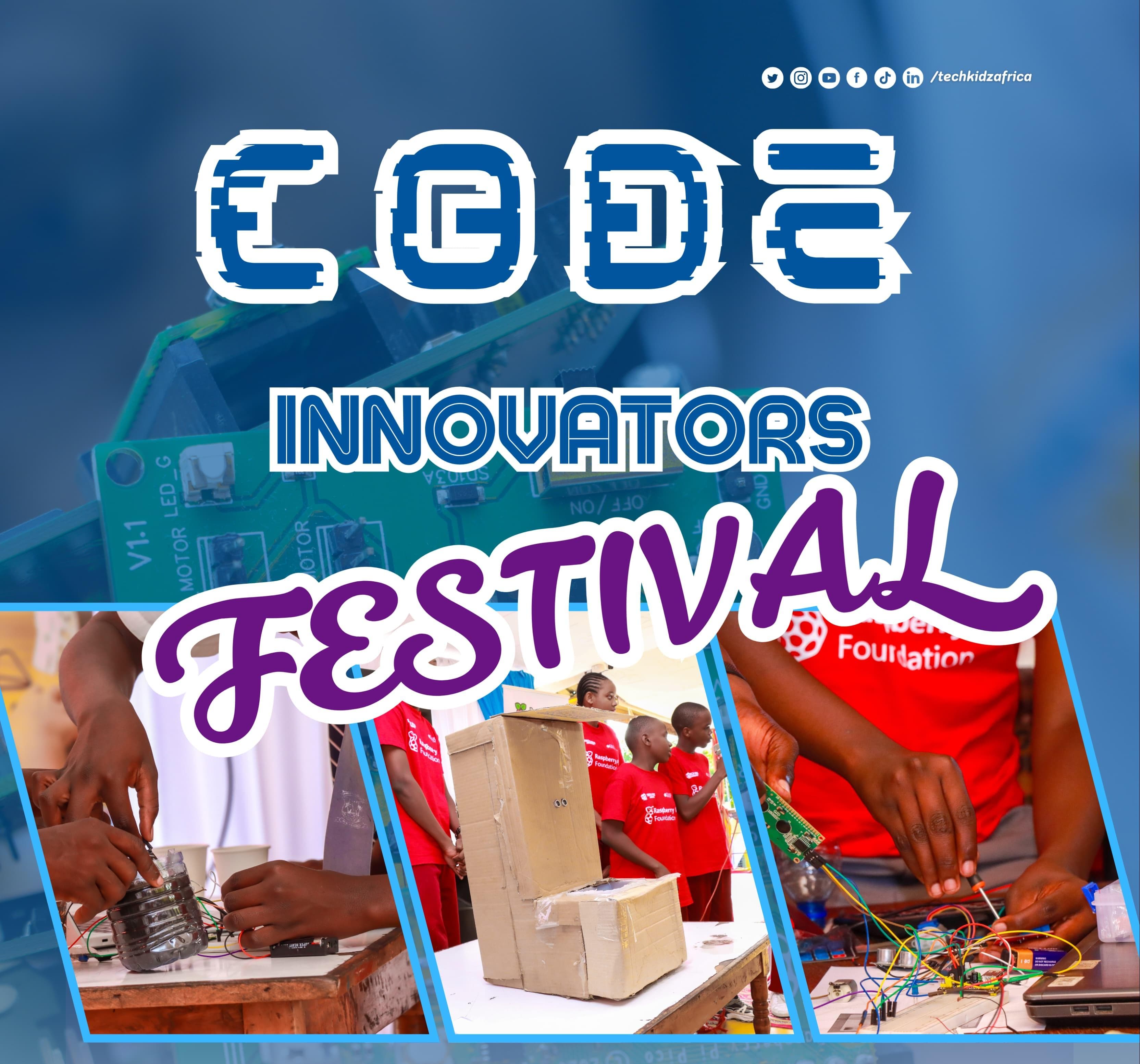
Empowering Teachers to Deliver Computing Education in Kenya: Reflections from Nakuru, Mombasa, and Taita Taveta
At Tech Kidz Africa, we’ve always believed that if we want to prepare young innovators for the future, we must begin by empowering the people who shape their perspective day in, day out; teachers.
This belief came to life when we partnered with the Raspberry Pi Foundation to roll out the Advancing Computing Literacy Project (ACLP) across Kenya. Together with a host of committed stakeholders, we trained more than 500 teachers in Nakuru, Mombasa, and Taita Taveta equipping them with both the skills and confidence to deliver the Computing Curriculum (TCC) in line with the national education reform agenda.
Building teacher capacity for a future-ready curriculum
In recent years, Kenya’s education system has been undergoing a transformation through the implementation of the Competency-Based Education (CBE). Unlike the previous knowledge-based system, CBE emphasizes practical learning, skills development, and technology integration.
However, introducing a new curriculum isn’t just about content, it’s about capacity. While computing has been introduced in classrooms, many teachers across the country have had limited exposure to digital tools or pedagogical training in computing. For CBE to succeed, teachers need structured support to understand and teach confidently and inclusively.
That’s where ACLP comes in.
What is the Advancing Computing Literacy Project (ACLP)?
The ACLP is a hands-on, training program developed to equip educators with the skills and knowledge required to implement the Computing Curriculum. The training goes beyond teaching technical content as it focuses on:
- Practical computing skills such as Scratch programming
- Culturally responsive pedagogy
- Classroom integration strategies
- Inclusivity in teaching computing
- Confidence building through peer teaching and collaboration
Each session is designed to help educators learn, unlearn, and reimagine what computing can look like in their classrooms and in the lives of their students.
Training teachers in Nakuru, Mombasa, and Taita Taveta
In April 2025, we delivered three powerful editions of ACLP, training teachers from urban, peri-urban, and rural settings.
In Nakuru, we delivered an intensive hands-on training to more than 150 teachers at the Kenya National Library Services, American Space Nakuru. Though Nakuru is among Kenya’s fastest-growing counties, research shows a significant gap in ICT integration in public schools. Many teachers have access to computers but rarely use them as teaching tools. During the training, the teachers showed great enthusiasm and a strong willingness to embrace change. Sessions were interactive, engaging, and full of discovery, with many educators expressing readiness to introduce computing immediately in their classrooms.
"This training has given me the confidence to start computing lessons next week. Our learners are going to experience something new and exciting," said Madam Tabitha, one of the participating teachers.
"The teacher’s union is well represented and is happy for this exercise of capacity building our teachers. These skills will uplift the education standards in our schools," added Mr. Zack from the Kenya National Union of Teachers.
Mombasa County: Equipping teachers in Kenya’s Coastal city
In Mombasa, over 250 teachers gathered at Kenya Coast National Polytechnic to learn how to bring computing to life in culturally diverse classrooms. Although Mombasa is a major city, access to computing tools in public schools remains uneven.
Despite these challenges, the training showcased a strong spirit of inclusivity and dedication. Teachers are going above and beyond the limitations they face whether it’s lack of infrastructure or the unique needs of their students. Many are already thinking about how to adapt what they’ve learned to suit learners of all abilities and backgrounds.
A teacher from Likoni VI powerfully stated,
"The content is good and will help me teach digital literacy. I’ll have to adapt the materials for visually impaired learners whom I teach."
"Now that you’ve been trained, it’s time to go to your schools and put all you’ve learned into action," urged Madam Furaha, representing the Mombasa County Director of Education, during the closing ceremony.
Taita Taveta County: Addressing the digital divide in rural Kenya
While Taita Taveta is known for its scenic landscapes many schools in the county face real challenges when it comes to technology access. Limited digital infrastructure and device availability have often made computing lessons difficult to implement. In fact, teachers here are often required to be creative finding ways to make lessons meaningful even when resources are limited.
Now, having trained over 60 educators in Taita Taveta County, we can confidently say that the seeds of change have been planted.
Over the two days, the training offered a practical and friendly approach to computing. Giving them tools to make that creativity even more impactful. They explored computing basics, got hands-on with Scratch programming, and learnt how to make lessons locally relevant.
"I now feel more equipped to explain computing concepts with real-world relevance," a teacher from Wundanyi expressed after the training.
Inclusivity, creativity, and contextual learning became central themes. Teachers explored how to integrate computing into their classrooms, not as an extra subject, but as a tool that enhances every subject from math and science to social studies and art. The goal was to make computing meaningful, accessible, and empowering for every learner.
During the official launch of the training, Deputy Governor Christine Kilalo emphasized the importance of digital literacy in shaping the future of education and workforce readiness.
" A future demanding competence requires competent learners and the essential starting point is high quality computing curriculum that empowers both students and educators. We are deeply grateful to Tech Kidz Africa and the Raspberry Pi Foundation. This training has planted seeds that will impact generations," she said.
Looking forward, we’re inspired by what lies ahead. From Mombasa to Taita Taveta and Nakuru, we’ve seen sparks of transformation ignite in classrooms where access to computing once seemed out of reach. Teachers are not only embracing new tools they’re reimagining what’s possible for their learners. They’re adapting computing for the visually impaired, making lessons locally relevant, and finding creative ways to overcome resource gaps.

